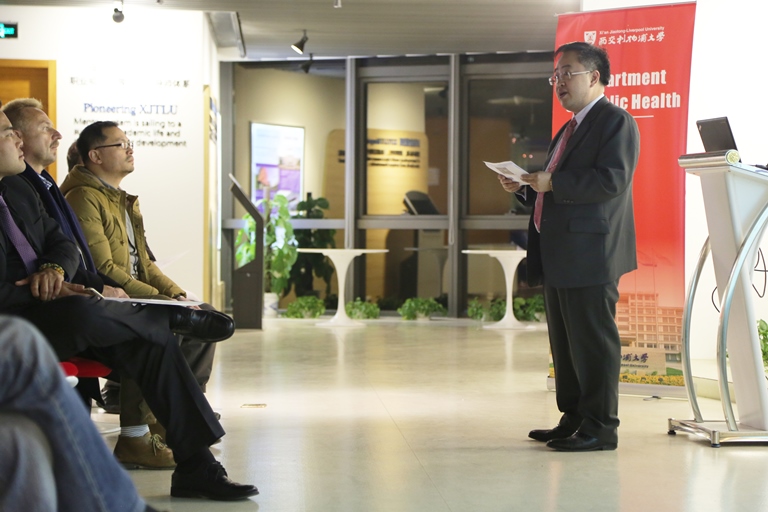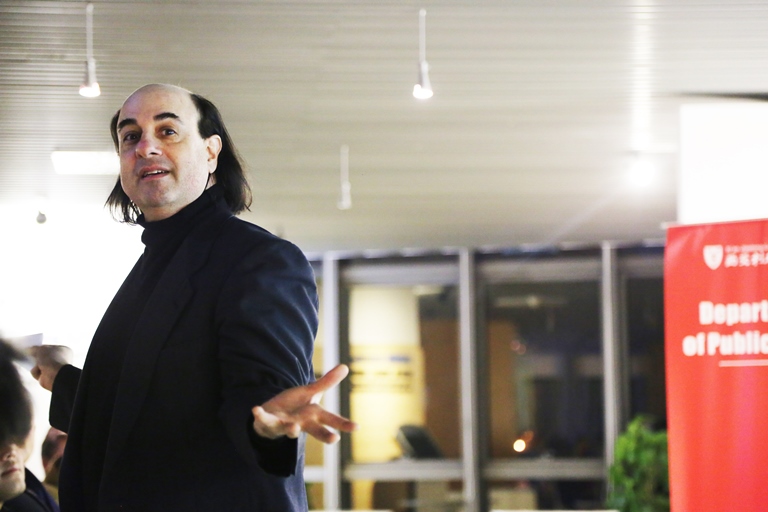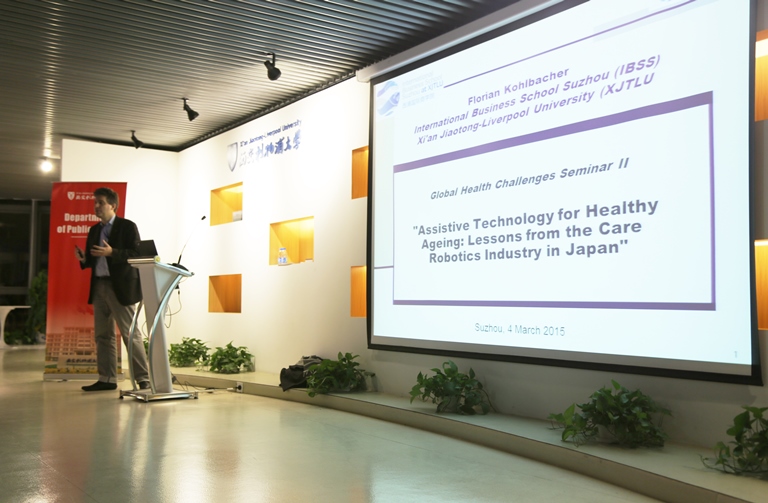06 Mar 2015
The Department of Public health at Xi’an Jiaotong-Liverpool University (XJTLU) has hosted the second in a series of Challenges in Global Health seminars to an audience of scholars, students and visiting experts in the University’s Museum this week.

In an example of the multi-disciplinary approach to teaching at XJTLU, Dr. Florian Kohlbacher from International Business School Suzhou (IBSS) was invited to present Wednesday’s seminar on the topic of “Assistive Technology for Healthy Ageing: Lessons from the Care Robotics Industry in japan.”
The talk began with a brief introduction into the seminar series from the convenor of the series, Dr. Paul Kadetz, Lecturer in the Department of Public Health at XJTLU. When explaining the range of topic which will be covered over the coming weeks and months Dr. Kadetz highlighted that “here at Public Health we don’t shy away from the big questions.” He mentioned that the first lecture last year focused on China’s one child policy, while the following presentation on the 18th March will investigate sex and drugs on the front lines of public health.
Dr. Kohlbacher was introduced by Associate Professor Elmer Villanueva, Head of the Department of Public Health, who welcomed the audience and explained how important Dr. Kohlbacher’s topic was at an academic and interdisciplinary level, and the implications it has on wider society in general.

During his presentation Dr. Kohlbacher gave some background into the problems Japan faces with ageing populations and the effects this has on society. He spoke briefly about the phenomenon of the Silver Market, whereby companies and industry have been forced to adapt to the challenges of a dramatic demographic shift in terms of reduction in workforce, loss of knowledge and a shrinking customer base by coming up with innovative new services or products.
Dr. Kohlbacher then went on to demonstrate a range of technologies which have been invented to assist with an ageing population such as the HAL (Hybrid Assistive Limb) exoskeleton suit developed by Japan’s Tsukuba University, SECOM’s ‘My Spoon’ robot which helps feed handicapped people and PARO, the therapeutic robot harp seal, which is said to have a calming effect on and elicit emotional responses in hospital patients or elderly people in nursing homes.
To conclude, Dr. Kohlbacher explained that the universal goal was to achieve “successful ageing” for a globally ageing population: to help them avoid disease; maintain high cognitive and physical function; and to engage with life to the fullest.

After the seminar the audience was given a chance to ask questions and expand on some of the points raised in the talk, and a thought-provoking discussion followed.
Launched In 2014, the Department of Public complements XJTLU’s expanding expertise in the areas of science, technology, engineering, mathematics, business and the social sciences. The Department offers innovative and comprehensive undergraduate and postgraduate programmes which provide students with the essential theoretical and practical foundations needed for a successful career in working to improve the health and well-being of populations.
The next seminar in this series is on March 18th at 6pm in the XJTLU Museum with Professor Danielle C. Ompad from New York University (NYU) visiting XJTLU to present a talk on: “Sex (and Drugs) in the City: Tales from the Front Lines of Urban Health.”
06 Mar 2015








